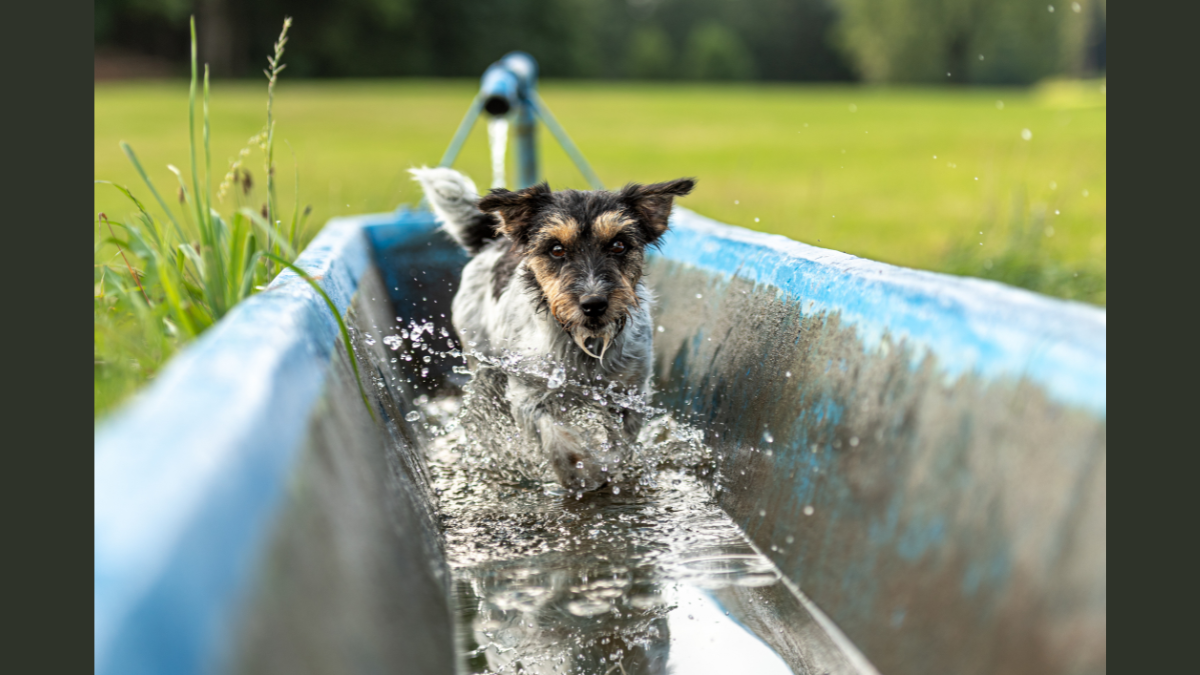Expert comment: Heatwave advice for animals
As heatwaves become more frequent in the UK, Emma Tallini, Senior Lecturer in Veterinary Clinical Practice at the University of Surrey, shares guidance on keeping pets, farm animals and wildlife safe during extreme heat:

During a heatwave, animals are especially vulnerable to heat stress, dehydration, and sunburn. Whether you're caring for pets, farm animals, horses or wildlife, taking proactive steps is essential to keep them safe.
Keep cool
Pets should always have access to cool, shaded areas and fresh water. Walk dogs early in the morning or late in the evening and avoid hot pavements that can burn their paws. Never leave pets in parked cars, even for a few minutes.
Heat stroke
It’s important to watch for signs of heat stroke: excessive panting, drooling, lethargy, or unsteady movement. If you are concerned that your pet is suffering from heat stroke, the advice is to soak them with very cold water and take them to the vet immediately in an air-conditioned car. Inadequate cooling or delayed response can be fatal so it is important to act quickly.
Farm animals
Farm animals need shaded areas or well-ventilated shelters with access to plenty of fresh, cool water. Check water troughs frequently and ensure enough trough space for the group. Avoid stressful handling and transportation during the hottest parts of the day.
Horses
Horses need shaded areas or well-ventilated stables with access to plenty of fresh, cool water, at all times. Reduce or avoid riding or strenuous work during the hottest part of the day. If a horse shows signs of heat stress (sweating, rapid/shallow breathing, increased heart rate, rectal temperature above 39 degrees, agitation, restlessness) apply cool water to the body, do not scrape and use fans to promote airflow.
Related sustainable development goals

Featured Academics
Media Contacts
External Communications and PR team
Phone: +44 (0)1483 684380 / 688914 / 684378
Email: mediarelations@surrey.ac.uk
Out of hours: +44 (0)7773 479911